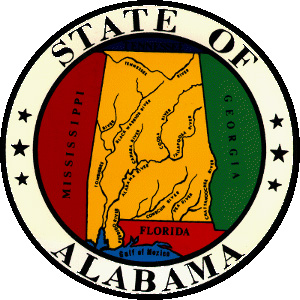Though a number of cities and county governments have taken steps to break ties with what is sometimes known as the United Nations Agenda 21, Alabama has become the first state to take such a stand. The new Alabama law prohibits any government involvement in ICLEI, or the International Council for Local Environmental Initiatives.
 At its heart, ICLEI has essentially been an end around by which environmental activists have been able to push their globalist agenda through what is often called “soft law”. When countries like the United States fail to adopt the environmentalist agenda promoted by the United Nations, that organization manages to bypass them by providing various incentives to state, county, and municipal organizations.
At its heart, ICLEI has essentially been an end around by which environmental activists have been able to push their globalist agenda through what is often called “soft law”. When countries like the United States fail to adopt the environmentalist agenda promoted by the United Nations, that organization manages to bypass them by providing various incentives to state, county, and municipal organizations.
A number of American towns boast about the positive financial impact of ICLEI realized by following new environmentalist incentives. John Birch Society New England Regional Director Hal Shurtleff illustrates this use of soft law in the case of the City of Newburyport, Massachusetts:
“Here is what’s disturbing. Here is a check, made out to the City of Newburyport from the Massachusetts Executive Office of Energy and Environmental Affairs. And why is this check on display? This is the second such check that I have found in a city or town that belongs to the ICLEI, the International Council on Local Environmental Initiatives, which is a government-to-government entity, unconstitutional on its face. And their goal is to implement Agenda 21, what they call “soft law” that came out of the Rio conference in 1992, very hostile to property rights, freedoms.”
But the reach of ICLEI is not limited to local governments. It extends to the federal as well, through “green” projects. President Obama has actually called for the federal government to start picking winners and losers in the marketplace for more energy-efficient products. President Obama boasted in his May 6, 2011 weekly address to the nation that he would continue to “invest” in green jobs. Because of that General Electric was able to claim a $3.25 billion tax credit in 2010, paying no corporate income taxes last year. GE cashed in on federal “tax credits” for green projects, such as its wind turbine projects.
The primary problem with the government picking winners and losers is that historically it almost always chooses losers. That is the legacy the housing bubble of the last decade. The federal government promoted home ownership by subsidies, tax credits, and suppression of interest rates, and crashed the economy. Government is now doing the same thing with green projects and the result to the economy will be even more devastating.
Now the state of Alabama has said no more. Alabama Senate Bill (SB) 477, legislation known unofficially as the “Due Process for Property Rights” Act, was approved unanimously by both the state House and Senate. Republican Governor Robert Bentley finally signed into law the popular measure after coming under heavy pressure from activists.
Knowledgeable insiders say the measure is likely to be the strongest protection against the UN scheme passed anywhere in the United States. The law aims at protecting private property rights, specifically preventing all state agencies and local governments in Alabama from participating in the global scheme in any way.
“The State of Alabama and all political subdivisions may not adopt or implement policy recommendations that deliberately or inadvertently infringe or restrict private property rights without due process, as may be required by policy recommendations originating in, or traceable to ‘Agenda 21,’ ” the law states, adding a brief background on the UN plan hatched at the 1992 “Earth Summit” in Rio de Janeiro.
But Alabama is not alone in a growing tide of resistance to Agenda 21. The state of Tennessee for example, recently passed a bipartisan state resolution labeling the measure “insidious and socialist”. Lawmakers in Kansas are seriously considering a similar resolution.
A growing number of local municipal governments like College Station, Texas have passed strongly worded laws separating themselves from ICLEI. “I am truly excited to announce that the proposed 2013 College Station budget will not include funding for this organization,” wrote College Station City Councilman Jess Fields. “It is an insidious, extreme institution that does not represent our citizens, and for our taxpayers to continue to fund it would be ridiculous.”
Hopefully mayors, governors, and state legislators will take their cue from cities like College Station and states like Alabama and say no to the intrusion of United Nations into the affairs of sovereign governments.
______________________
©2012 Off the Grid News
 Off The Grid News Better Ideas For Off The Grid Living
Off The Grid News Better Ideas For Off The Grid Living



